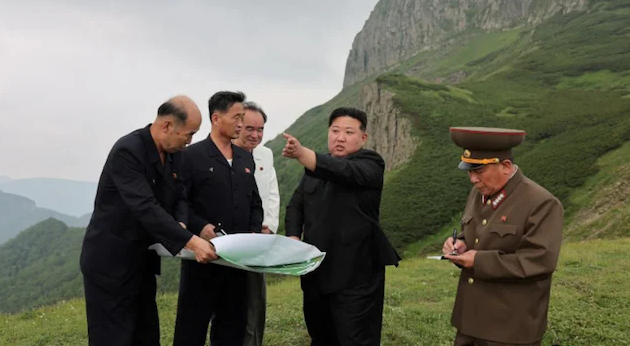In a recent statement, North Korean leader Kim Jong Un revealed that North Korea is advancing its nuclear force construction policy to dramatically increase its stockpile of nuclear weapons. The announcement was made on the occasion of the country’s founding anniversary, as reported by state media KCNA.
Kim emphasized the need for North Korea to bolster its “nuclear capability and readiness” to ensure the state’s security rights. According to KCNA, he outlined that this expansion is essential to effectively respond to perceived threats.
The North Korean leader stressed that a robust military presence is crucial to address the various challenges posed by the United States and its allies. He described this increase in nuclear weapons as part of a broader strategy to strengthen national defense.
Kim’s speech reflects North Korea’s ongoing commitment to enhancing its military capabilities amid escalating regional tensions. The decision to boost nuclear weapon numbers marks a significant development in the country’s defense policy.
State media highlighted that Kim’s remarks underscore a continued focus on nuclear readiness and the importance of maintaining a strong military posture to safeguard North Korea’s interests.
The announcement comes at a time of heightened global concern over nuclear proliferation and security. North Korea’s actions and statements are closely monitored by international observers, given the implications for regional stability.
Kim’s focus on nuclear expansion aligns with the broader trends of increasing military capabilities among nations with significant defense concerns. His statements signal a continued emphasis on maintaining and enhancing North Korea’s strategic deterrence.
The international community remains vigilant regarding North Korea’s nuclear ambitions and the potential impact on global security dynamics. The increase in nuclear weapons adds a new dimension to the already complex geopolitical landscape.
North Korea’s policy shift reflects ongoing tensions and the country’s determination to assert its security stance amidst international pressures. The global response to these developments will be crucial in shaping future diplomatic and security strategies.
As North Korea proceeds with its nuclear expansion, the international community will likely engage in discussions to address the implications for regional and global stability.
